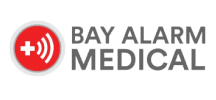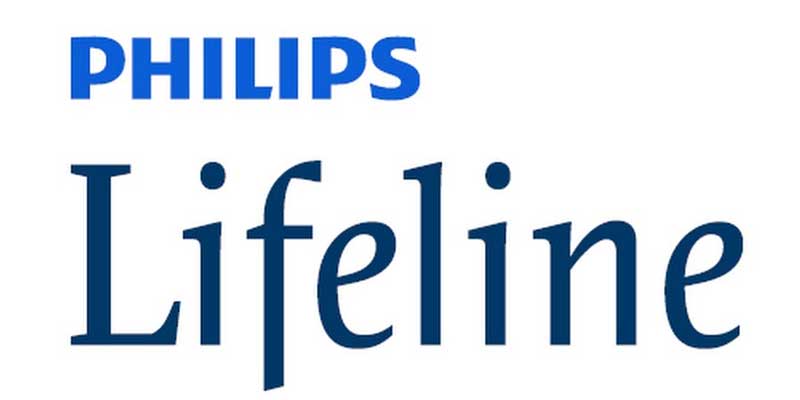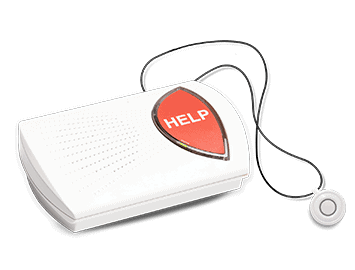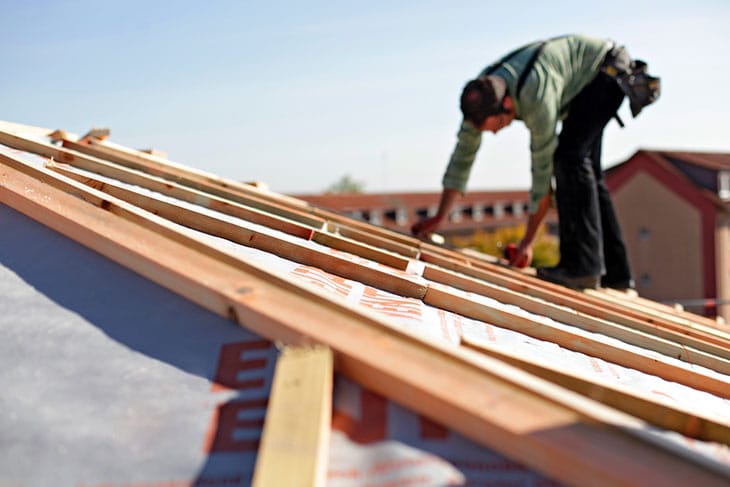Medical alert systems offer peace of mind for seniors, caregivers, and families by ensuring immediate access to help during emergencies. From in-home base stations to wearable smart devices with GPS and automatic fall detection, today’s top systems are more advanced and user-friendly than ever before.
The best medical alert companies combine reliable monitoring, easy setup, and flexible pricing with modern technology — like mobile apps, smartwatch integration, and caregiver tracking. Monthly monitoring typically ranges from $20 to $60, depending on features such as fall detection, location tracking, and cellular connectivity.
- Best for Technology and Connectivity: Medical Guardian, LifeStation
- Best for Value and Family Support: Bay Alarm Medical, Medical Care Alert
- Best for Nationwide Coverage: LifeFone, MobileHelp
Best Brands at a Glance
10 Best Medical Alert Systems of 2026
Medical Guardian
- Average Cost: $29 to $45 per month

What We Love
Medical Guardian is the industry leader for medical alert technology, offering both in-home and on-the-go systems with advanced connectivity. Its devices feature GPS tracking, Wi-Fi compatibility, fall detection, and mobile app integration for caregivers. The MGMove smartwatch brings a sleek, modern look to personal safety with text alerts and fitness tracking.
We rate it 5 stars for reliability, device innovation, and customer support excellence.
Cost Information
Monthly monitoring plans typically range $29 to $45, depending on the system type.
- Home Guardian (In-Home): $29 to $34 per month
- Mobile Guardian (GPS + Cellular): $39 to $45 per month
- Optional Fall Detection: $10 per month
Best Product
The MGMove Smartwatch offers hands-free emergency calling, step tracking, and text alerts—ideal for active users who prefer a discreet wearable.
Bay Alarm Medical
- Average Cost: $24 to $40 per month

What We Love
Bay Alarm Medical provides top-rated reliability with transparent pricing and strong customer support. With both home-based and mobile options, the company allows caregivers to monitor loved ones through an intuitive app. Bay Alarm’s bundled plans make it easy to cover multiple family members for a single affordable price.
We rate it 5 stars for value, reliability, and caregiver-friendly options.
Cost Information
Plans range $24 to $40 per month, depending on system and coverage type.
- In-Home Medical Alert: $24 per month
- GPS Help Button: $30 to $35 per month
- Fall Detection Add-On: $10 per month
Best Product
The In-Home + GPS Bundle provides seamless protection inside and outside the home with dual monitoring and caregiver location tracking.
LifeStation
- Average Cost: $25 to $37 per month

What We Love
LifeStation stands out for its modern device design, including the Sidekick Smart, one of the most advanced smartwatch-style medical alert systems available. It combines emergency response, fall detection, and fitness tracking in a discreet wearable. With nationwide monitoring and fast average response times under 15 seconds, LifeStation offers premium protection without premium pricing.
We rate it 4.5 stars for modern design, fast response, and caregiver technology.
Cost Information
Monitoring plans range $25 to $37 per month, depending on device.
- In-Home Landline or Cellular: $25 per month
- Sidekick Smart Watch: $37 per month
- Fall Detection: $10 per month
Best Product
The Sidekick Smart Watch offers advanced fall detection, GPS tracking, and a touchscreen interface — perfect for active seniors who want discreet safety coverage.
LifeFone
- Average Cost: $29 to $43 per month

What We Love
LifeFone is a long-established provider known for its nationwide coverage and high customer satisfaction. Offering both home and mobile systems, LifeFone supports 24/7 monitoring and fall detection across the U.S. It’s one of the few companies that allow users to share a single plan across multiple devices.
We rate it 4.5 stars for versatility, coverage, and customer trust.
Cost Information
LifeFone’s plans cost $29 to $43 per month, depending on device and connection type.
- At-Home Landline or Cellular: $29.95 per month
- At-Home & On-the-Go GPS: $36.95 per month
- Fall Detection Add-On: $5 per month
Best Product
The At-Home & On-the-Go GPS System provides continuous coverage wherever you travel, with optional fall detection and two-way communication.
MobileHelp
- Average Cost: $25 to $40 per month

What We Love
MobileHelp offers medical alert systems designed for active seniors who want protection anywhere with cellular coverage. Its devices use AT&T’s 4G LTE network for reliable nationwide access. With no long-term contracts and flexible plans, MobileHelp makes medical safety convenient and affordable.
We rate it 4.5 stars for portability, reliability, and strong cellular coverage.
Cost Information
Plans range $25 to $40 per month, depending on features.
- MobileHelp Classic (In-Home): $25 per month
- MobileHelp Duo (Home + GPS): $36 per month
- Fall Detection: $10 per month
Best Feature
The MobileHelp Duo System combines home and mobile coverage, offering one of the best all-in-one solutions for seniors who travel or live independently.
Compare top-rated medical alerts pros in your area.
Read real homeowner reviews, explore qualifications, and view promotions. Modernize makes it easy to browse professionals and find one that will be perfect for your project.
Medical Care Alert
- Average Cost: $29 to $39 per month

What We Love
Medical Care Alert is a family-owned provider based in Michigan, offering U.S.-based monitoring through two redundant centers. Its systems are ideal for families who want responsive, personalized service and easy caregiver communication. Each plan includes automatic fall detection and optional activity tracking for added peace of mind.
We rate it 4 stars for family focus, customer service, and affordable plans.
Cost Information
Plans typically cost $29 to $39 per month, depending on system type.
- Home Medical Alert: $29 per month
- Home & Away GPS: $39 per month
- Fall Detection Included: No additional charge
Best Product
The Home & Away Duo System provides reliable protection at home or on the go, with automatic fall detection and caregiver app notifications.
Philips Lifeline
- Average Cost: $29 to $50 per month

What We Love
As one of the first medical alert brands in the U.S., Philips Lifeline has served millions of customers with reliable, easy-to-use devices. The company offers both landline and cellular systems with optional GPS tracking and automatic fall detection. Its straightforward setup and trusted name make it a dependable choice for seniors who value simplicity.
We rate it 4 stars for brand longevity, ease of use, and dependable performance.
Cost Information
Pricing ranges $29 to $50 per month, depending on features.
- HomeSafe Landline or Cellular: $29.95 per month
- GoSafe2 Mobile Device: $49.95 per month
- Fall Detection: Included with select models
Best Product
The GoSafe2 Mobile Pendant combines GPS tracking and fall detection in a lightweight design that works anywhere with cellular coverage.
OneCallAlert
- Average Cost: $24 to $35 per month

What We Love
OneCallAlert offers reliable emergency response systems at competitive prices, with flexible month-to-month plans and no activation fees. Customers can choose from landline, cellular, or mobile systems, all monitored by a U.S.-based center. It’s an excellent choice for seniors who want simplicity and affordability without long-term commitments.
We rate it 4 stars for affordability, simplicity, and transparent pricing.
Cost Information
Plans range $24 to $35 per month, depending on system and features.
- In-Home Landline System: $24 per month
- Cellular or GPS Models: $30 to $35 per month
- Fall Detection Add-On: $10 per month
Best Plan
The On-the-Go Mobile System provides GPS tracking and fall detection in a lightweight device for protection at home or while traveling.
ADT Health
- Average Cost: $29 to $45 per month

What We Love
ADT Health brings decades of home safety experience to its medical alert offerings, making it a smart choice for customers already using ADT security. Its systems integrate easily with existing alarm services and provide reliable monitoring backed by ADT’s nationwide network.
We rate it 3.5 stars for home security compatibility, reliability, and national support.
Cost Information
Plans cost $29 to $45 per month, depending on system and connection.
- Medical Alert Basic (Landline): $29 per month
- Medical Alert Plus (Cellular): $35 per month
- On-the-Go GPS: $45 per month
Best Feature
The Medical Alert Plus System integrates seamlessly with ADT home security systems for comprehensive household safety coverage.
Life Alert
- Average Cost: $49 to $69 per month

What We Love
Known for its iconic “Help, I’ve fallen and I can’t get up” slogan, Life Alert remains one of the most recognized names in the industry. It offers reliable, U.S.-based monitoring and 24/7 emergency support, but its technology hasn’t evolved as much as newer competitors. Life Alert is best for customers who prefer a simple, established service.
We rate it 3 stars for brand legacy, reliability, and professional monitoring.
Cost Information
Plans average $49 to $69 per month, depending on system and contract.
- In-Home Medical Alert: $49 per month
- Mobile GPS System: $69 per month
- Setup Fee: $95 one-time
Best System
The Classic In-Home System provides dependable landline connectivity and proven emergency response without complicated technology.





